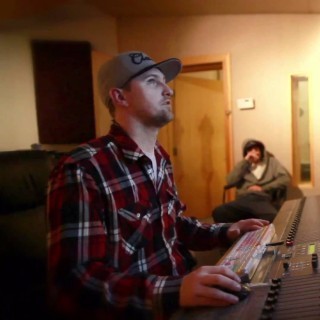
107
Poetry
Tekst piosenki
Perseus, after his victory over Atlas, and his change into a mountain, arrives in Æthiopia, at the time when Andromeda is exposed to be devoured by a monster. He kills it, and hides the Gorgon’s head under the sand, covered with sea-weed and plants; which are immediately turned into coral. He then renders thanks to the Gods for his victory, and marries Andromeda. At the marriage feast he relates the manner in which he had killed Medusa; and the reason why Minerva had changed her hair into serpents.
The grandson of Hippotas77 had shut up the winds in their eternal prison; and Lucifer, who reminds men of their work, was risen in the lofty sky, in all his splendor. Resuming his wings, Perseus binds his feet with them on either side, and is girt with his crooked weapon, and cleaves the liquid air with his winged ankles. Nations innumerable being left behind, around and below, he beholds the people of the Æthiopians and the lands of Cepheus. There the unjust Ammon78 had ordered the innocent Andromeda to suffer punishment for her mother’s tongue.79
Soon as the descendant of Abas beheld her, with her arms bound to the hard rock, but that the light breeze was moving her hair, and her eyes were running with warm80 tears, he would have thought her to be a work of marble. Unconsciously he takes fire, and is astonished; captivated with the appearance of her beauty, thus beheld, he almost forgets to wave his wings in the air. When he has lighted on the ground, he says, “O thou, undeserving of these chains, but rather of those by which anxious lovers are mutually united, disclose to me, inquiring both the name of this land and of thyself, and why thou wearest these chains.” At first she is silent, and, a virgin, she does not dare address81 a man; and with her hands she would have concealed her blushing features, if she had not been bound; her eyes, ’twas all she could do, she filled with gushing tears. Upon his often urging her, lest she should seem unwilling to confess her offence, she told the name both of her country and herself, and how great had been the confidence of her mother in her beauty. All not yet being told, the waves roared, and a monster approaching,82 appeared with its head raised out of the boundless ocean, and covered the wide expanse with its breast. The virgin shrieks aloud; her mournful father, and her distracted mother, are there, both wretched, but the latter more justly so. Nor do they bring her any help with them, but tears suitable to the occasion, and lamentations, and they cling round her body, bound to the rock.
Then thus the stranger says: “Plenty of time will be left for your tears hereafter, the season for giving aid is but short. If I were to demand her in marriage, I, Perseus, the son of Jove, and of her whom, in prison, Jove embraced in the impregnating shower of gold, Perseus, the conqueror of the Gorgon with her serpent locks, and who has dared, on waving wings, to move through the ætherial air, I should surely be preferred before all as your son-in-law. To so many recommendations I endeavor to add merit (if only the Deities favor me). I only stipulate that she may be mine, if preserved by my valor.” Her parents embrace the condition, (for who could hesitate?) and they entreat his aid, and promise as well, the kingdom as a dowry. Behold! as a ship onward speeding, with the beak fixed in its prow, plows the waters, impelled by the perspiring arms83 of youths; so the monster, moving the waves by the impulse of its breast, was as far distant from the rocks, as that distance in the mid space of air, which a Balearic string can pass with the whirled plummet of lead; when suddenly the youth, spurning the earth with his feet, rose on high into the clouds. As the shadow of the hero was seen on the surface of the sea, the monster vented its fury on the shadow so beheld. And as the bird of Jupiter,84 when he has espied on the silent plain a serpent exposing its livid back to the sun, seizes it behind; and lest it should turn upon him its raging mouth, fixes his greedy talons in its scaly neck; so did the winged hero, in his rapid flight through the yielding air, press the back of the monster, and the descendant of Inachus thrust his sword up to the very hilt in its right shoulder, as it roared aloud.
Tortured by the grievous wound, it sometimes raises itself aloft in the air, sometimes it plunges beneath the waves, sometimes it wheels about, just like a savage boar, which a pack of hounds in full cry around him affrights. With swift wings he avoids the eager bites85 of the monster, and, with his crooked sword, one while wounds its back covered with hollow shells, where it is exposed, at another time the ribs of its sides, and now, where its tapering tail terminates in that of a fish. The monster vomits forth from its mouth streams mingled with red blood; its wings, made heavy by it, are wet with the spray. Perseus, not daring any longer to trust himself on his dripping pinions,86 beholds a rock, which with its highest top projects from the waters when becalmed, but is now covered by the troubled sea. Resting on that, and clinging to the upper ridge87 of the rock with his left hand, three or four times he thrusts his sword through its entrails aimed at by him. A shout, with applause, fills the shores and the lofty abodes of the Gods. Cassiope and Cepheus, the father, rejoice, and salute him as their son-in-law, and confess that he is the support and the preserver of their house.
Released from her chains, the virgin walks along, both the reward and the cause of his labors. He himself washes his victorious hands in water taken from the sea; and that it may not injure the snake-bearing head with the bare sand, he softens the ground with leaves; and strews some weeds produced beneath the sea, and lays upon them the face of Medusa, the daughter of Phorcys. The fresh weeds, being still alive, imbibed the poison of the monster in their spongy pith, and hardened by its touch; and felt an unwonted stiffness in their branches and their leaves. But the Nymphs of the sea attempt the wondrous feat on many other weeds, and are pleased at the same result; and raise seed again from them scattered on the waves. Even now the same nature remains in the coral, that it receives hardness from contact with the air; and what was a plant in the sea, out of the sea becomes stone.
To three Deities he erects as many altars of turf; the left one to Mercury; the right to thee, warlike Virgin; the altar of Jove is in the middle. A cow is sacrificed to Minerva; a calf to the wing-footed God, and a bull to thee, greatest of the Deities. Forthwith he takes Andromeda, and the reward of an achievement so great, without any dowry. Hymenæus and Cupid wave their torches before them; the fires are heaped with abundant perfumes. Garlands, too, are hanging from the houses: flageolets and lyres, and pipes, and songs resound, the happy tokens of a joyous mind. The folding-doors thrown open, the entire gilded halls are displayed, and the nobles of king Cepheus sit down at a feast furnished with splendid preparations. After they have done the feast, and have cheered their minds with the gifts of the generous Bacchus, the grandson of Abas inquires the customs and habits of the country. Immediately one of them, Lyncides, tells him, on his inquiring, the manners and habits of the inhabitants. Soon as he had told him these things, he said, “Now, most valiant Perseus, tell us, I beseech thee, with how great valor and by what arts thou didst cut off the head all hairy with serpents.” The descendant of Abas tells them that there is a spot situate beneath cold Atlas, safe in its bulwark of a solid mass; that, in the entrance of this, dwelt the two sisters, the daughters of Phorcys, who shared the use of a single eye; that he stealthily, by sly craft, while it was being handed over,88 obtained possession of this by putting his hand in the way; and that through rocks far remote, and pathless, and bristling with woods on their craggy sides, he had arrived at the abodes of the Gorgons, and saw everywhere, along the fields and the roads, statues of men and wild beasts turned into stone, from their natural form, at the sight of Medusa; yet that he himself, from the reflection on the brass of the shield89 which his left hand bore, beheld the visage of the horrible Medusa; and that, while a sound sleep held her and her serpents entranced, he took the head from off the neck; and that Pegasus and his brother,90 fleet with wings, were produced from the blood of her, their mother. He added, too, the dangers of his lengthened journey, themselves no fiction;91 what seas, what lands he had seen beneath him from on high, and what stars he had reached with his waving wings.
Yet, before it was expected,92 he was silent; whereupon one of the nobles rejoined, inquiring why she alone, of the sisters, wore snakes mingled alternately with her hair. “Stranger,” said he, “since thou inquirest on a matter worthy to be related, hear the cause of the thing thou inquirest after. She was the most famed for her beauty, and the coveted hope of many wooers; nor, in the whole of her person, was any part more worthy of notice than her hair: I have met with some who said they had seen it. The sovereign of the sea is said to have deflowered her in the Temple of Minerva. The daughter of Jove turned away, and covered her chaste eyes with her shield. And that this might not be unpunished, she changed the hair of the Gorgon into hideous snakes. Now, too, that she may alarm her surprised foes with terror, she bears in front upon her breast, those snakes which she thus produced.”
Footnotes:
77. Hippotas.]—Ver. 663. Æolus, the God of the Winds, was the son of Jupiter, by Acesta, the daughter of Hippotas.
78. Ammon.]—Ver. 671. Jupiter, with the surname of Ammon, had a temple in the deserts of Libya, where he was worshipped under the shape of a ram; a form which he was supposed to have assumed, when, in common with the other Deities, he fled from the attacks of the Giants. The oracle of Jupiter Ammon being consulted relative to the sea monster, which Neptune, at the request of the Nereids, had sent against the Ethiopians, answered that Andromeda must be exposed to be devoured by it; which Ovid here, not without reason, calls an unjust demand.
79. Mother’s tongue.]—Ver. 670. Cassiope, the mother of Andromeda, had dared to compare her own beauty with that of the Nereids. Cepheus, the son of Phœnix, was the father of Andromeda.
80. Warm.]—Ver. 674. ‘Tepido,’ ‘warm,’ is decidedly preferable here to ‘trepido,’ ‘trembling.’
81. Dare address.]—Ver. 682. Heinsius thinks that ‘appellare’ here is not the correct reading; and suggests ‘aspectare,’ which seems to be more consistent with the sense of the passage, which would then be, ‘and does not dare to look down upon the hero.’
82. Monster approaching.]—Ver. 689. Pliny the Elder and Solinus tell us that the bones of this monster were afterwards brought from Joppa, a seaport of Judæa, to Rome, and that the skeleton was forty feet in length, and the spinal bone was six feet in circumference.
83. The perspiring arms.]—Ver. 707. ‘Juvenum sudantibus acta lacertis’ is translated by Clarke, ‘forced forward by the arms of sweating young fellows.’
84. Bird of Jupiter.]—Ver. 714. The eagle was the bird sacred to Jove. The larger kinds of birds which afforded auguries from their mode of flight, were called ‘præpetes.’
85. Avoids the eager bites.]—Ver. 723. Clarke translates this line, ‘He avoids the monster’s eager snaps with his swift wings.’
86. His dripping pinions.]—Ver. 730. ‘Talaria’ were either wings fitted to the ankles, or shoes having such wings fastened to them; they were supposed to be usually worn by Mercury.
87. Clinging to the upper ridge.]—Ver. 733. ‘Tenens juga prima sinistra’ is rendered by Clarke, ‘seizing the tip-top of it with his left hand.’
88. Being handed over.]—Ver. 766. Of course, as they had but one eye between them, they must have both been blind while it was passing from one hand to another, so that Perseus could have had but little difficulty in effecting the theft here mentioned.
89. Brass of the shield.]—Ver. 783. This reflecting shield Perseus is said to have received from Minerva, and by virtue of it he was enabled to see without being seen. Lucian says that Minerva herself held this reflecting shield before him, and by that means afforded him the opportunity of seeing the reflection of Medusa’s figure; and that Perseus, seizing her by the hair with his left hand, and keeping his eye fixed on the image reflected in the shield, took his sword in his right, and cut off her head, and then, by the aid of his wings, flew away before the other Gorgon sisters were aware of what he had done.
90. Pegasus and his brother.]—Ver. 786. Pegasus and Chrysaor were two winged horses, which were fabled to have sprung up from the blood of Medusa, when slain by Perseus.
91. Themselves no fiction.]—Ver. 787. His dangers were not false or imaginary, inasmuch as he was pursued by Sthenyo and Euryale, the sisters of Medusa, who were fabled to have wings, and claws of iron on their hands. Ovid deals a sly hit in the words ‘non falsa pericula cursus,’ at the tales of travellers, who, even in his day, seem to have commenced dealing in the marvellous; as, indeed, we may learn for ourselves, on turning to the pages of Herodotus, who seems to have been often imposed upon.
92. Before it was expected.]—Ver. 790. Showing thereby how delighted his audience was with his narrative.
Tłumaczenie
Brak
Polecani artyści
Najnowsze teksty piosenek
Sprawdź teksty piosenek i albumy dodane w ciągu ostatnich 7 dni


























